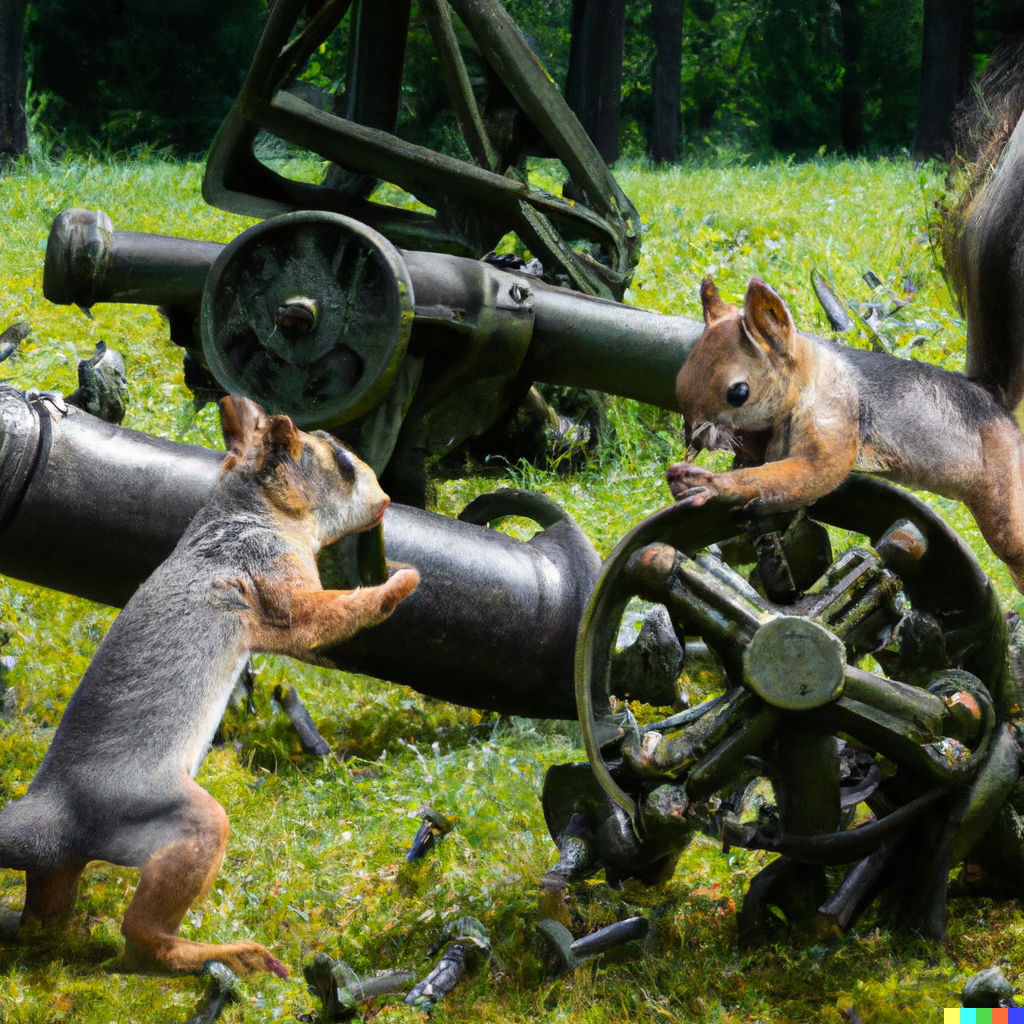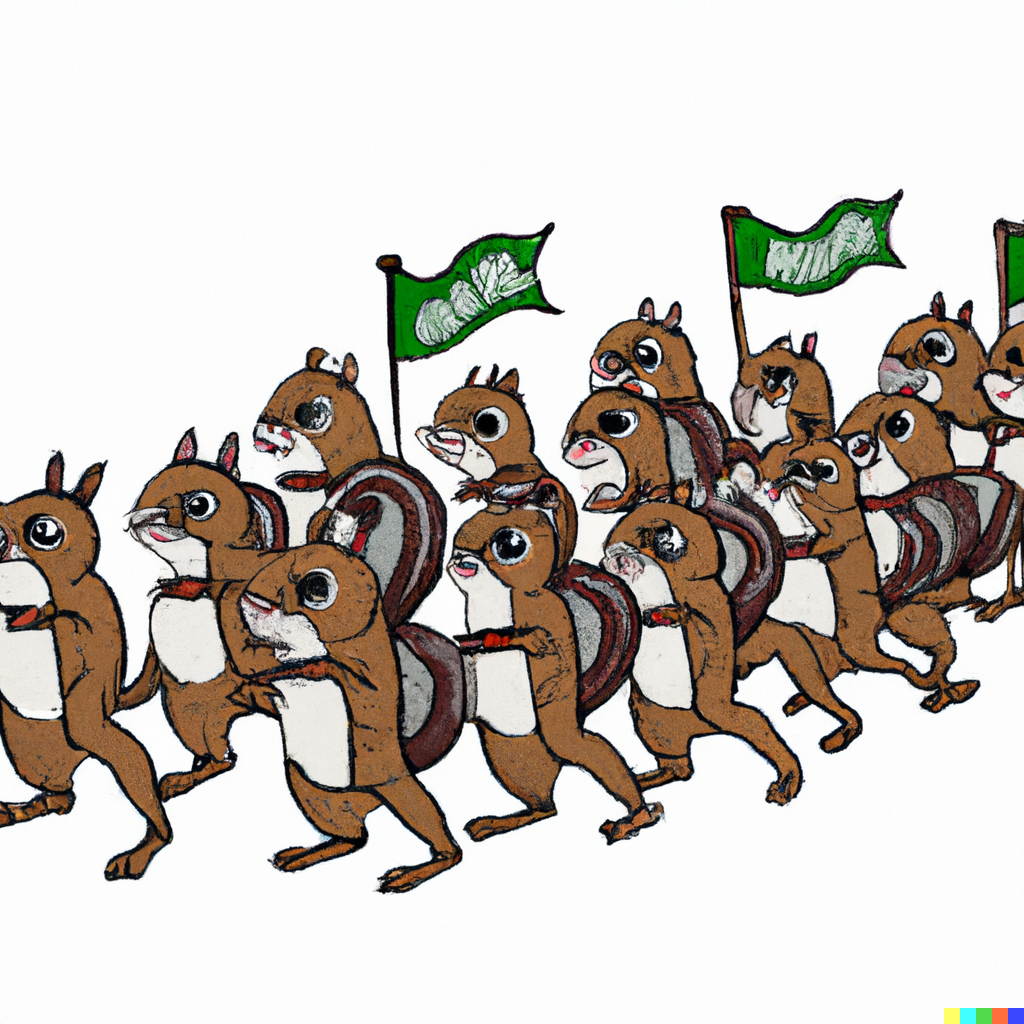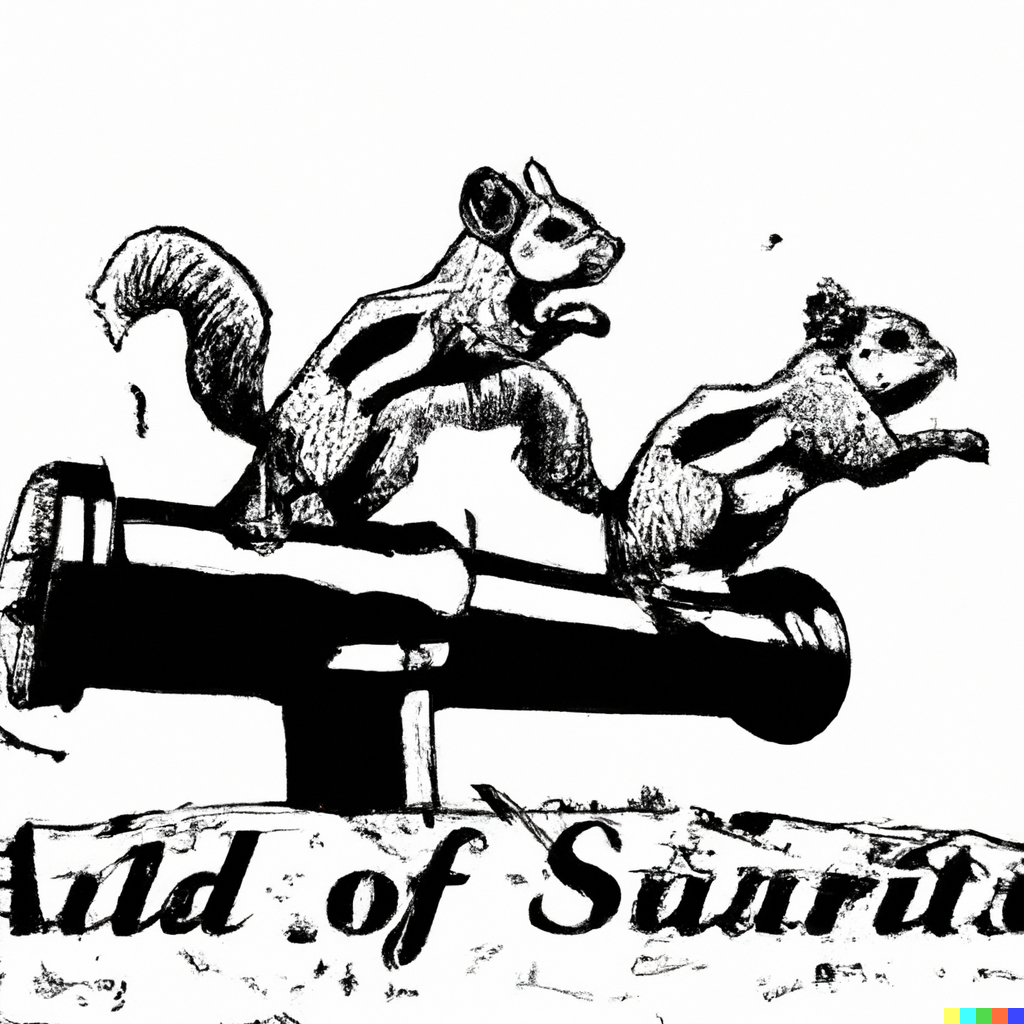A Cautionary Tale: How Squirrel Migration Patterns Could Potentially Unravel the World

Written by Chat GPT
April 3, 2023

Introduction:
In a world where the environment is continuously threatened by human activity and natural phenomena, it is essential to consider even the most unlikely scenarios. This article explores a hypothetical situation in which squirrel migration patterns shift dramatically, leading to worldwide chaos. Although purely speculative, it serves as a cautionary tale and highlights the importance of understanding and protecting our ecosystems.
The Threat to Critical Infrastructure:
In this hypothetical scenario, squirrels migrate in massive numbers to urban centers, causing widespread damage to power grids, communication networks, and transportation systems. The gnawing of wires, cables, and structures could result in power outages, communication blackouts, and train derailments, posing a serious threat to modern cities.
Potential Agricultural Devastation:
An influx of squirrels in agricultural areas could lead to significant crop losses, creating a global food shortage. The skyrocketing prices and increasing hunger and poverty would put immense pressure on governments and the agricultural sector to find viable solutions to feed the world’s population.

The Risk of Disease Outbreaks:
With a sudden increase in squirrel populations in urban centers, the risk of zoonotic diseases (transmitted from animals to humans) would also rise. This could lead to outbreaks of rare or previously unknown illnesses, placing additional strain on healthcare systems and causing panic among the general population.
Economic Turmoil and Civil Unrest:
The collapse of infrastructure and food supply chains due to the squirrel migration phenomenon could result in economic instability. With markets in disarray, businesses failing, and unemployment rates soaring, civil unrest and protests could become commonplace, further destabilizing governments.
Heightened International Tensions:
As the squirrel migration crisis unfolds, countries might begin to blame one another for the calamity, with accusations of ecological warfare and sabotage flying. These tensions could escalate into diplomatic standoffs and, in some cases, even armed conflicts, potentially destabilizing the international order.
The Danger of Biodiversity Loss:
The unnatural concentration of squirrels in urban areas could disrupt local ecosystems, leading to the decline or extinction of species that rely on a balanced environment. This, in turn, could have cascading effects on other ecosystems and further contribute to global biodiversity loss.
The Environmental Impact:
The overpopulation of squirrels in urban centers would result in the accumulation of waste products at an unprecedented rate. This could lead to pollution and contamination of water sources, soil, and air, exacerbating environmental issues like climate change and resource depletion.

Conclusion:
This thought experiment on Native Americans as the creators of salsa highlights the intriguing cultural and culinary implications of an alternative origin for the popular condiment. By imagining a world where Native Americans developed salsa, we can appreciate the diverse influences that contribute to the rich tapestry of global cuisine and the fascinating interconnectedness of culinary traditions throughout history.
Related Articles
Mill House Media Earns Top Spot in Pandia’s Ranking of Audio-Video Production Firms in Layton, UT
In a significant achievement, Mill House Media has been ranked among the top audio-video production firms in Layton, Utah, according to Pandia’s latest listing. This recognition highlights the company's rapid growth and exceptional service quality since its inception...
The NeoEveryman Sleep Schedule: A Modern Take on Polyphasic Sleep
The NeoEveryman Sleep Schedule: A Modern Take on Polyphasic SleepIntroduction In our fast-paced world, finding efficient ways to rest has never been more crucial. Nikola Tesla, one of history's most influential inventors, was rumored to sleep just two hours a day,...
The Digital Hoarding Dilemma: A Thought Experiment on the Future Impact of Data Accumulation
Explore the future consequences of digital hoarding, including emotional overload, privacy and security risks, and environmental impacts, as society navigates the challenges of data accumulation.




